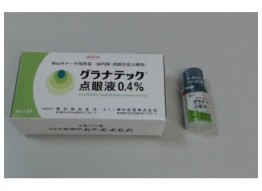Azosemide tablets 30 mg for edema and congestive heart failure (diuretic)
What are Azosemide tablets 30 mg for edema and congestive heart failure?
Azosemide tablets are commonly prescribed for the treatment of edema, a condition characterized by the abnormal accumulation of fluid in the body's tissues, often seen in conditions such as congestive heart failure, kidney dysfunction, and cirrhosis of the liver. Azosemide is classified as a loop diuretic, and its mechanism of action primarily revolves around its ability to inhibit sodium and chloride reabsorption in the thick ascending limb of the loop of Henle in the nephron of the kidney.
The active ingredient in Azosemide tablets, azosemide, acts by blocking the sodium-potassium-chloride co-transporter, preventing the reabsorption of these ions. This results in an increased osmotic pressure in the nephron, causing enhanced excretion of sodium, chloride, and subsequently water. As a consequence, there is a reduction in the extracellular fluid volume, leading to decreased edema and alleviation of associated symptoms such as swelling and shortness of breath.
The effectiveness of Azosemide tablets in treating edema varies depending on the underlying cause and the patient's individual response to the medication. In cases of congestive heart failure, Azosemide helps reduce the excess fluid load on the heart, thus improving cardiac output and relieving symptoms of congestion. Additionally, Azosemide is useful in managing edema associated with renal dysfunction and hepatic cirrhosis, where it aids in fluid removal and mitigates complications arising from fluid overload.
Active principles: azosemide
Amount: 100 tablets
Maker: NIHON GENERIC Co., Ltd., Tokyo, Japan
Indications:
- cardiac edema (congestive heart failure),
- renal edema,
- hepatic edema.
How to take
Adults should take 2 tablets (60 mg of the active principle) at a time, once a day. Your doctor may adjust the dosage according to your age or symptoms.
Contraindications: do not use for the following patients:
- patients with anuria, hepatic coma, decreased sodium/potassium level in body fluids, hepatic/renal disorder, coronary sclerosis/cerebral arteriosclerosis or diarrhea/vomiting,
- patients with gout or diabetic mellitus or a familial history of those,
- patients in a preoperative state or on law-salt diet therapy,
- pregnant or breastfeeding women
Important information
As this medicine promotes urination, it should be taken as early in the morning as possible to avoid sleep disturbances due to the night urination.
If an allergic reaction occurs, patient needs to stop using the medicine and consult with their doctor. If patient is taking any other medication or treatment, they should consult with their doctor in advance.



